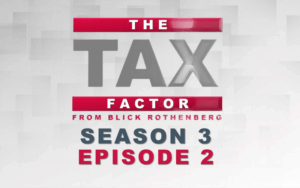
Government ‘Biting the Hand That Feeds Them’ by Driving Non-Doms Away
Non-Doms paid an average of £150k per annum in Income Tax, NIC and CGT for the 2023/24 UK tax year
17 July 2025 | Author: Robert Salter
The recent decision to phase out the UK’s non-domicile (“non-dom”) tax regime could have serious implications for the Treasury and the wider economy
Non-Doms Contribute Far More Than Their Numbers Suggest
Despite representing only a small proportion of the UK taxpayer base, non-doms make a disproportionately large contribution to government revenue.
Robert Salter, Director, explains:
The Government’s recently published statistics for the 2023/24 UK tax year show that approximately 83,000 taxpayers claimed ‘non-domiciled’ status for the year ended 5th April 2024 0.2% of the income tax paying UK population. However, these individuals contributed almost £12.5bn to HM Treasury via income tax, National Insurance Contributions (NIC) and Capital Gains Tax (CGT) in the year.
On average, each non-dom paid nearly £150,000 in direct personal taxes last year – far exceeding the UK average. Their fiscal impact, however, extends beyond just income-related taxes.
The Cost of Losing Non-Doms
The risk now is that the UK may lose this highly valuable tax base just as other jurisdictions compete for global talent and investment.
If the UK were to lose this revenue from the non-doms, and there are some clear signs that many non-doms are leaving the UK, at least in part because of the removal of the non-dom regime and the increased risk that they could become liable to UK Inheritance Tax (IHT), it would take a 1.5p increase in the basic rate of income tax payable by regular taxpayers to fully ‘recover’ the potential losses from the departure of non-doms.
This stark statistic underlines the magnitude of the risk. The loss of non-dom taxpayers could result in heavier tax burdens for ordinary UK residents.
Knock-On Effects to Broader Tax Revenues
The withdrawal of the non-dom regime isn’t just a blow to income tax collections. The potential economic impact is broader, encompassing corporate and consumption-based taxes as well.
In addition to the direct personal taxes which the non-dom population has contributed to the UK, these individuals have also been paying billions more into the UK economy through VAT on the products & services they buy in the UK, while their companies in the UK will be paying significant amounts in UK corporation tax too. If the tax changes introduced by the Government do drive the non-dom population away, the Government will not just lose the income tax, CGT and NICs mentioned above, but some of the receipts from these additional taxes too.
Attracting Wealth and Talent – A Missed Opportunity?
The UK’s non-dom regime had long played a role in attracting high-net-worth individuals and international executives to Britain. While not perfect, it was a draw for global wealth and investment.
While there were certainly some ‘flaws’ with the UK’s non-dom regime, such as the fact that it rewarded non-doms for keeping their foreign income and gains outside the UK, it was a significant factor in attracting executives and High Net Worth Individuals here. The removal of this tax regime may mean that the UK economy will suffer significant losses, both in tax receipts but also in wider economic investment over the coming years.
A Critical Crossroads
As tax reforms continue to unfold, the UK stands at a critical policy crossroads. With billions in tax revenue and international investment at stake, the removal of the non-dom regime risks undermining both the public finances and the country’s reputation as a destination for global talent.
Would you like to know more?
If you would like to discuss any of the above, please speak to your usual Blick Rothenberg contact or Robert Salter using the form below.
Contact Robert

You may also be interested in

Closing the Fiscal Black Hole: Why Tackling the £46.8bn Tax Gap Should Be Rachel Reeves’ Priority

Record £2.4 Billion in Tax Relief Signals Government Backing for UK’s Creative Industries













